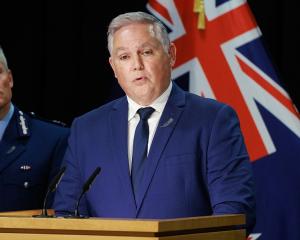
The New Zealand Ice Hockey Federation, along with Ice Hockey Australia, is switching its regional affiliation.
The International Ice Hockey Federation has approved the joint request from the two countries to leave the Asia region and join the Americas region.
It was a move that had been 18 months in the making, Mills said.
The transtasman national bodies had fleshed out the idea and taken it to the IIHF at its congress in Greece for approval last week.
Mills said the big move — especially the formal link with arguably the two most powerful ice hockey nations in the world — was positive for New Zealand.
"We’ve got an ongoing relationship with USA Hockey, and they’ve been incredibly supportive of us and Australia over the years.
"It’s just as close to the west coast of the US, and some of the South American countries, as it is to a lot of the Asian countries.
"There are also 27 Asian countries [in the IIHF] and currently the Americas consist of seven, so it’s a little bit more streamlined, and obviously USA Hockey and Canada are leaders in the world of ice hockey with massive numbers.
"They’re also leaders in women’s hockey, which is increasing in New Zealand, so we need to be ahead of the game and get their guidance in terms of where to from here."
There will be no immediate change to how New Zealand’s various teams operate.
The Ice Blacks, Ice Ferns and junior equivalents — some of whom have had excellent results in recent years — will continue to take part in their various world championships around the globe.
"It will be a lot more about collaboration to start with, especially with USA Hockey," Mills said.
New Zealand will host a couple of elite American coaches at the end of this month for a camp involving 160-plus junior players.
The national federation’s main focus was coach education, Mills said.
It was also hoping to foster the growth of the men’s and women’s national leagues. That, in turn, should help boost numbers and the performance of the elite teams.
"It’s a long game. It’s a little bit different to a lot of sports, where people have a natural ability to run, as opposed to learning how to skate.
"Skating is 80% of the the game, so it’s a long-term thing. You can’t pick up a young player in their teens and expect them to play for their country.
"It takes a long time to build a sustainable hockey programme. We’ve been doing that for years, and it’s starting to pay dividends."












